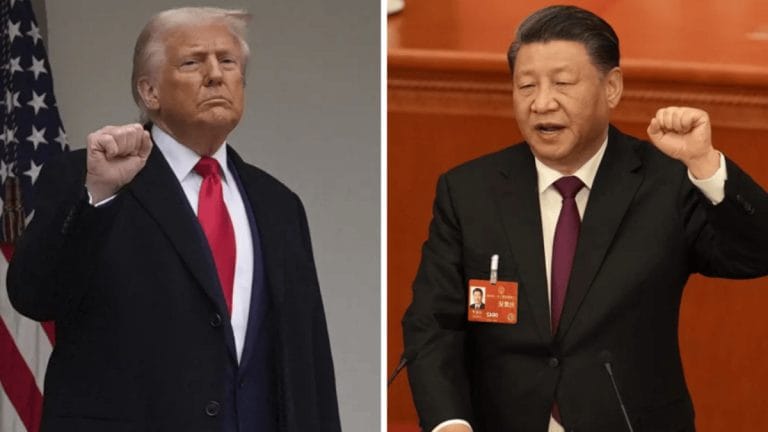🎧 Listen to This Article
A high-stakes phone call between President Donald Trump and President Xi Jinping signals a new phase in the fragile U.S.-China trade truce. Framed by China as a direct appeal from one strongman to another, the conversation was as much a public performance as it was a private negotiation.
Xi Jinping likened the U.S.-China relationship to a large vessel needing steady leadership. The warning was implicit: don’t let rogue officials steer this ship into dangerous waters.
The call came after weeks of intensifying restrictions from the U.S., including new controls on AI chips, chip design software, and jet engine components bound for China. Trump’s administration had also moved to revoke student visas, a measure interpreted by Beijing as an attack on educational and technological exchange.
Leadership vs. Cabinet Discord
The conversation highlighted the internal dissonance within the Trump administration. While Secretary of State Marco Rubio and Defense Secretary Pete Hegseth took hardline stances, Trump used the call to project a softer tone, even welcoming Chinese students back with open arms.
China’s Strategic Calculations
China, meanwhile, is navigating economic instability stemming from a housing crisis and soaring youth unemployment. The decision to engage in top-level diplomacy could be a calculated pause designed to buy time, de-escalate tensions, and position itself better for prolonged economic decoupling.
Rare earth export restrictions, Beijing’s most substantial economic leverage, remain a pressure point. China aims to show resilience while quietly calculating how long it can endure without full U.S. market access.
Taiwan and the Tipping Point
Beyond trade, the call also underlined growing tension over Taiwan. Xi pressed Trump to act “prudently,” while China’s state media rebuked recent U.S. calls for stronger Asian defense ties. Though Trump downplayed these discussions, they remain a critical geopolitical flashpoint.
A Fragile Equilibrium
Analysts say the relationship has entered a “fragile equilibrium.” Trump appears to have softened visa policies in response to Xi’s direct appeal, and both sides agreed to restart trade talks in London. But beneath the surface, the structure of the truce looks increasingly unstable.
If this agreement collapses again, China knows which levers to pull and which pressure points make Washington take notice.
For further details, clarification, contributions, or any concerns regarding this article, please get in touch with us at editorial@tax.news. We value your feedback and are committed to providing accurate and timely information. Please note that our privacy policy will handle all inquiries.



